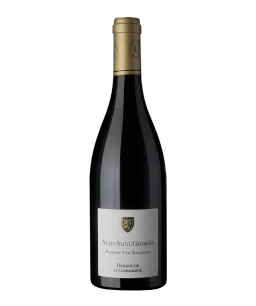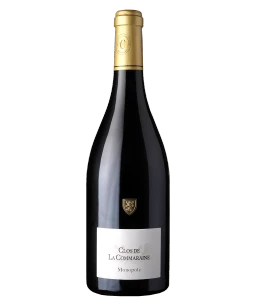Domaine de la Commaraine
The beauty behind the walls of Château Commaraine
The Burgundian municipality of Pommard has a classic, historic ambience with most of the buildings and walled vineyards (clos) intact, exuding a peaceful and tranquil atmosphere. The small, romantic village square conveys a slightly exotic feeling to its visitors – an unusual sensation in rural Burgundy indeed!
Clos de la Commaraine, a Monopole Premier Cru just outside the village centre of Pommard is an incredible vineyard waiting to be rediscovered. It is an outstanding estate in every respect, with a beautiful château in the southern part of the vineyard, on the outskirts of the village. The vineyard is owned by Harvard professor Denise Dupré and Mark Nunnelly, a former managing director at the Boston-based investment fund Bain Capital. Also on board is Jean-Luc Vitoux – a French investor and current director of La Commaraine. Now, under the passionate care of the new owners and a brilliant team, it is also well on its way to setting a new benchmark in Pommard. No expense is being spared to tease out the best wine from the terroir of the clos, from the cultivation of the vines to the selection and vinification.
The debut wine 2018 Clos de la Commaraine Monopole from Domaine de la Commaraine is simply stunning. Luxurious, detailed and refined, this is undoubtedly a very special wine. The 2018 harvest marked the next chapter in the life of Burgundy’s landmark Clos de la Commaraine. Situated in the highly regarded Côte-d’Or, the estate comprises 3.75 hectares of Pommard 1er Cru vines grown in a monopole and now cultivated for the production of biodynamic wines. The last wine produced under the label of the single vineyard Commaraine dates back to 2002 – since then the grapes have been sold to Maison Louis Jadot and produced under the Jadot label.
White wines from Domaine de la Commaraine
Red wines from Domaine de la Commaraine
from Domaine de la Commaraine
The estate is also the site of a 12th century château with historical threads leading back to the Dukes of Burgundy. It had been vacant since 2013, but is being lavishly renovated and converted into a five-star hotel, an underground spa in the 14th-century cellars and a restaurant – a vision of the two Americans Denise Dupré and Mark Nunelly, who also own the luxury hotel Royal Champagne and the organic champagne house Leclerc-Briant. With the acquisition of Clos de la Commaraine, the couple also took over the Domaine Belleville in Rully and the Manoir Murisaltien in Meursault. The boutique hotel with its 23 rooms is somewhat off the beaten track. “We want to offer our guests something beyond just ‘staying at a great hotel’”, says director Jean-Luc Vitoux.
“We also want to share our passion with the guests by involving them in the agricultural and winemaking work to familiarise them with the terroir of the clos”, says Vitoux. This work is to be carried out according to organic (or ‘bio’ as the French call it) and biodynamic principles while the new team converts the vineyards. “Sustainability is a key part of our value with biodynamic farming for the whole estate”, says Vitoux. Even before the conversion, the estate was farmed ecologically, with just a single chemical used during the flowering period. This spring, sheep grazed the vines under the supervision of two vineyard experts who have been tending the vines for over 20 years. “Wine is at the heart of the project”, says trade and marketing director Hugues Romagnan.
The 2018 harvest was carried out plot by plot and vinified separately, with decisions on blending to be made in June. “We have to understand the terroir by playing with ten plots”, says Vitoux. An interesting approach was chosen to understand the terroir: an electromagnetic conductivity study of soil variability, carried out by the Chilean company AgroPrecision. “At the end of spring we will conduct an analysis of the vines and leaves to see if they are in good shape and ‘well-nourished’, or if some nutrient or component is missing”, says Vitoux.
Producer
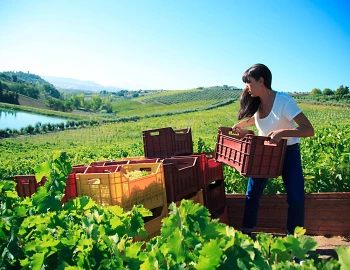
Fattoria Nicodemi / Fam. Nicodemi
Between the deep blue of the Adriatic Sea to the east and the snowy peaks of the Gran Sasso to the west you find the rolling and charming landscape of Abruzzo. On a hilltop lies the pretty village of Notaresco and not far from it the winery of Elena and Alessandro Nicodemi.
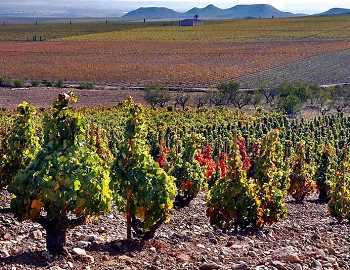
Bodega Palacios Remondo
He was born 'at home', right above his father's bodega – Álvaro Palacios, Spains star vintner. The scent of wine and barrels must have been lying in the air and thus dictated his further life. He studied oenology in Bordeaux and gathered professional experience at the Château Pétrus, and in London, Dublin, and California. Today, he owns vines in the Priorat county, in Bierzo, and at home in the Rioja, and proves his extraordinary talent with premium wines year after year.
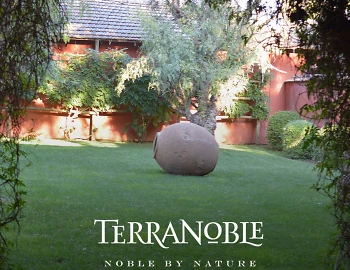
Viñedos Terranoble
Soon after their arrival, the first Spanish colonists were already remarking the ideal vine growing conditions in Chile. In this country of great contrasts, embedded between the Andes and the Pacific Ocean, the many wine regions differ significantly through micro-climate, topography and altitudes, and geological properties. TerraNoble owns vineyards in three different regions and so can provide different varieties with the most suitable growing conditions.



